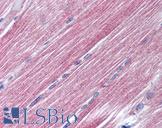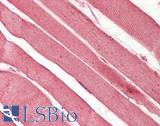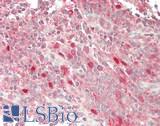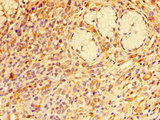Login
Registration enables users to use special features of this website, such as past
order histories, retained contact details for faster checkout, review submissions, and special promotions.
order histories, retained contact details for faster checkout, review submissions, and special promotions.
Forgot password?
Registration enables users to use special features of this website, such as past
order histories, retained contact details for faster checkout, review submissions, and special promotions.
order histories, retained contact details for faster checkout, review submissions, and special promotions.
Quick Order
Products
Antibodies
ELISA and Assay Kits
Research Areas
Infectious Disease
Resources
Purchasing
Reference Material
Contact Us
Location
Corporate Headquarters
Vector Laboratories, Inc.
6737 Mowry Ave
Newark, CA 94560
United States
Telephone Numbers
Customer Service: (800) 227-6666 / (650) 697-3600
Contact Us
Additional Contact Details
Login
Registration enables users to use special features of this website, such as past
order histories, retained contact details for faster checkout, review submissions, and special promotions.
order histories, retained contact details for faster checkout, review submissions, and special promotions.
Forgot password?
Registration enables users to use special features of this website, such as past
order histories, retained contact details for faster checkout, review submissions, and special promotions.
order histories, retained contact details for faster checkout, review submissions, and special promotions.
Quick Order
| Catalog Number | Size | Price |
|---|---|---|
| LS-C499648-50 | 50 µg | $294 |
| LS-C499648-100 | 100 µg | $360 |
Polyclonal Rabbit anti‑Human RAB7A / RAB7 Antibody (FITC) LS‑C499648
Polyclonal Rabbit anti‑Human RAB7A / RAB7 Antibody (FITC) LS‑C499648
Antibody:
RAB7A / RAB7 Rabbit anti-Human Polyclonal (FITC) Antibody
Application:
ELISA
Reactivity:
Human
Format:
FITC, Unmodified
Other formats:
Toll Free North America
 (800) 227-6666
(800) 227-6666
For Research Use Only
Overview
Antibody:
RAB7A / RAB7 Rabbit anti-Human Polyclonal (FITC) Antibody
Application:
ELISA
Reactivity:
Human
Format:
FITC, Unmodified
Other formats:
Specifications
Description
RAB7 antibody LS-C499648 is an FITC-conjugated rabbit polyclonal antibody to human RAB7 (RAB7A). Validated for ELISA.
Target
Human RAB7A / RAB7
Synonyms
RAB7A | CMT2B | PRO2706 | RAB7 | Ras-associated protein RAB7 | Ras-related protein Rab-7a | PSN
Host
Rabbit
Reactivity
Human
(tested or 100% immunogen sequence identity)
Clonality
IgG
Polyclonal
Conjugations
Purification
Protein G purified
Modifications
Unmodified
Immunogen
Recombinant human Ras-related protein Rab-7a protein (110-177AA)
Specificity
Key regulator in endo-lysosomal trafficking. Governs early-to-late endosomal maturation, microtubule minus-end as well as plus-end directed endosomal migration and positioning, and endosome-lysosome transport through different protein-protein interaction cascades. Plays a central role, not only in endosomal traffic, but also in many other cellular and physiological events, such as growth-factor-mediated cell signaling, nutrient-transportor mediated nutrient uptake, neurotrophin transport in the axons of neurons and lipid metabolism. Also involved in regulation of some specialized endosomal membrane trafficking, such as maturation of melanosomes, pathogen-induced phagosomes (or vacuoles) and autophagosomes. Plays a role in the maturation and acidification of phagosomes that engulf pathogens, such as S.aureus and M.tuberculosis. Plays a role in the fusion of phagosomes with lysosomes. Plays important roles in microbial pathogen infection and survival, as well as in participating in the life cycle of viruses. Microbial pathogens possess survival strategies governed by RAB7A, sometimes by employing RAB7A function (e.g. Salmonella) and sometimes by excluding RAB7A function (e.g. Mycobacterium). In concert with RAC1, plays a role in regulating the formation of RBs (ruffled borders) in osteoclasts. Controls the endosomal trafficking and neurite outgrowth signaling of NTRK1/TRKA (PubMed:11179213, PubMed:12944476, PubMed:14617358, PubMed:20028791, PubMed:21255211). Regulates the endocytic trafficking of the EGF-EGFR complex by regulating its lysosomal degradation. Involved in the ADRB2-stimulated lipolysis through lipophagy, a cytosolic lipase-independent autophagic pathway (By similarity). Required for the exosomal release of SDCBP, CD63 and syndecan (PubMed:22660413).
Applications
- ELISA
- Applications tested for the base form of this product only
Presentation
PBS, pH 7.4, 0.03% Proclin 300, 50% glycerol.
Storage
Short term: -20°C; Long term: -80°C; Avoid freeze-thaw cycles.
Restrictions
For research use only. Intended for use by laboratory professionals.
About RAB7A / RAB7
Publications (0)
Customer Reviews (0)
Featured Products
Species:
Human, Monkey, Mouse, Rat, Bovine, Dog, Rabbit, Chicken, Xenopus, Zebrafish
Applications:
IHC, IHC - Paraffin, ICC, Western blot
Species:
Mouse, Human, Monkey, Rat, Dog
Applications:
IHC, IHC - Paraffin, Immunofluorescence, Western blot
Species:
Human, Mouse, Rat
Applications:
IHC, IHC - Paraffin, Western blot
Species:
Human
Applications:
ICC, Western blot, Flow Cytometry, ELISA
Request SDS/MSDS
To request an SDS/MSDS form for this product, please contact our Technical Support department at:
Technical.Support@LSBio.com
Requested From: United States
Date Requested: 12/22/2024
Date Requested: 12/22/2024














